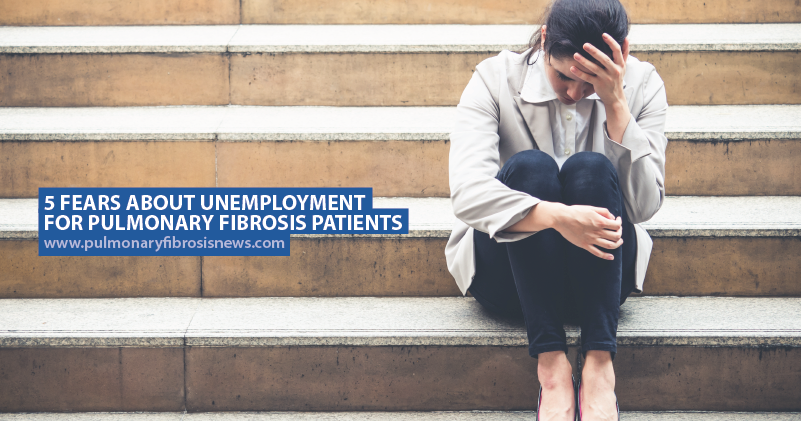-
5 Fears About Unemployment for Pulmonary Fibrosis Patients
 Pulmonary fibrosis (PF) is a progressive and life-threatening disease for which there is no cure. This means that a patient’s ability to function and complete daily tasks will change dramatically. Unfortunately, this may affect their career choice and eventually, it can affect the patient’s ability to work at all. For someone who values their career, along with the passion and challenge it brings them; losing the ability to work can feel comparable to the loss of a beloved item, or a favourite hobby or even comparable to the loss of a limb for some people. For some, being unable to work is one of the hardest things to accept.
Pulmonary fibrosis (PF) is a progressive and life-threatening disease for which there is no cure. This means that a patient’s ability to function and complete daily tasks will change dramatically. Unfortunately, this may affect their career choice and eventually, it can affect the patient’s ability to work at all. For someone who values their career, along with the passion and challenge it brings them; losing the ability to work can feel comparable to the loss of a beloved item, or a favourite hobby or even comparable to the loss of a limb for some people. For some, being unable to work is one of the hardest things to accept.For many PF patients, there are very real concerns that accompany the idea of unemployment. Unfortunately, there aren’t many solutions to these common concerns — and the anxiety surrounding these concerns doesn’t help with a patient’s ability to cope with their disease.
Some concerns and fears regarding unemployment from a patient’s perspective, include:
1. Boredom
Living with a chronic illness is lonely enough since it feels like most people can’t relate to what you’re going through. On top of that loneliness, the days can become long and unstructured which can lead to a feeling of boredom. (Contrary to most people’s beliefs, watching TV, crafting and resting becomes redundant and boring when you do it every day.) Boredom can also be bad for mental health, as it leaves room for negativity, which can start wreaking havoc on a patient’s ability to cope.2. Loss of social connection
When a patient is part of an organization that fosters community and support, the impact of unemployment can be minimized. While some patients may be able to achieve this through personal friendships and relationships; others adore their colleagues and feel disconnected when they can no longer be at work.3. Loss of productivity and purpose
Unstructured days can be a good thing periodically. However, repeatedly having nothing to do can make patients feel lost. Employment puts purpose into day-to-day living, and gives people a sense of productivity and accomplishment. When this is taken away, your purpose is redefined but that new definition is often not nearly as meaningful as it was when you had a career that was important to you.4. Financial implications
The financial implications that come with unemployment (with or without a chronic illness) are overwhelming, and are likely among the top reasons a patient does not want to give up their career. The fear of not being able to pay for medications, rehabilitation expenses, or just the costs of daily living, can become a huge stressor for those living with a chronic illness.5. Perception from others
Unfortunately, the stigma around disability and whether or not someone can actually work with an illness still exists. There is this perception that in order for you not to work, your disability or chronic illness must be physical or visible, when this is not the case for so many patients. PF is an invisible illness and yet it is often fatal; something most people wouldn’t understand unless they know and love someone with the disease. If you’re unemployed, there is often a very real fear of how others will perceive your situation. No one wants to be unemployed, especially due to a chronic or life-threatening illness, but there are people out there who would unfortunately argue that being on disability or not having to work is better than working full-time. This is a very hard perception to contend with as a patient with a chronic illness.Do you have other fears about being unemployed due to your chronic illness? If so, please share them and let others know how you are combating those fears if you have had to give up your career.
Log in to reply.
